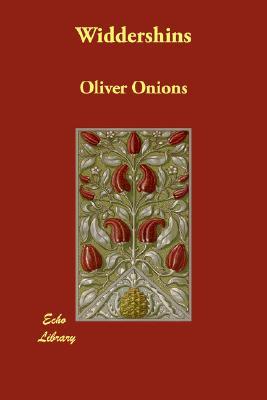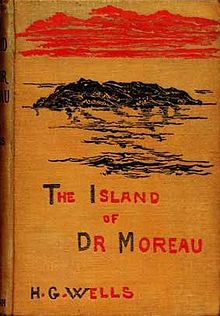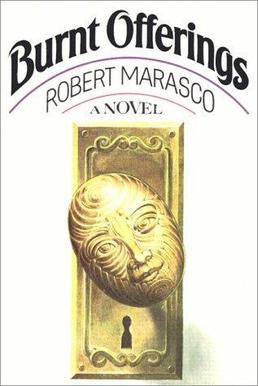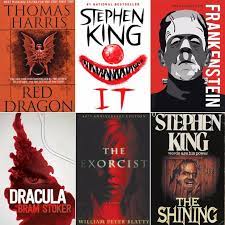This time I dig into classic turn-of-the-century ghost stories, a seminal novel from H.G. Wells, a book of poems, an influential New England haunted house story and a bleak, post-apocalyptic Pulitzer Prize-winner.
Join me as I take another dip into the following four lists:
Reedsy Discovery Best Horror Books
Stephen Jones & Kim Newman’s Horror: 100 Best Books
Stephen Jones & Kim Newman Horror: Another 100 Books
Also if you’re just tuning in, my previous two entries can be found here:

Widdershins (Oliver Onions, 1911)
List: Jones/Newman
Widdershins seems most often brought up for the inclusion of the novella “The Beckoning Fair One”, Oliver Onions’ ghostly tale of obsession, and it is a deserved reputation. This particular story in this collection is one of the better ghost stories of Victorian period English literature I’ve read. While the rest of the stories in the collection I would say aren’t quite up to the same standard, there are some solid works here. Onions’ characters are haunted in seemingly ambiguous ways. In many stories, including “The Beckoning Fair One”, it can be hard to delineate between the supernatural and the mad. From the unseen spirit tormenting the titular character in “Rooum”, an 18th century ship in “Phantas” or an all-consuming masterwork in “Benlian”, his characters see their lives drained away by the mysterious and ethereal. It even includes a couple of non-supernatural stories “The Accident” and “Hic Jacet” where the characters are still haunted but more by the past and their own inadequacies. “Hic Jacet” in particular was quite good, about a Sir Arthur Conan Doyle-esque writer of popular detective fiction who wrestles with his own self-respect as he attempts to pen a fitting biography of his recently deceased friend, an artist with the utmost of integrity. The content of the stories were frequently interesting, but having said that, I will say like other works of Victorian literature, the writing style can be difficult to stay engaged with without proper focus. Oliver Onions is a very meticulous and dense writer of florid prose that may be out of reach of modern audiences at times. Still, I think “The Beckoning Fair One” in particular is worth reading for fans of horror fiction.

The Island of Dr. Moreau (H.G. Wells, 1896)
List: Jones/Newman
I’ve always enjoyed H.G. Wells’ more unpretentious and economical style of storytelling for the time period in which he wrote. It certainly makes his sci-fi and horror novels feel more fresh and engaging than some of his contemporaries and The Island of Dr. Moreau is no different. I think I had actually read an abridged version of this when I was a kid but felt like it was appropriate to revisit it in its uncut form. The narrative itself is quite familiar due to the numerous adaptations in film and TV (save for the final act which often gets truncated due to its somewhat anti-climactic conclusion). Overall, I quite enjoyed it though with a solid pacing and still interesting storyline despite some sketchy science and uncomfortable racism.

Goblin Market & Other Poems (Christina Rossetti, 1862)
List: NPR
Here’s a rather atypical entry for a best horror fiction list, a book of poems. Many of these focus on death, loss, love and religion (all popular topics for poems) and vary from well-constructed to trite. The centerpiece of the collection and the reason it was included on the NPR Best Horror list is the long form poem Goblin Market, a story of temptation and familial love. It follows two girls who are tempted by luscious fruits made available at the goblin market, apparently a place where goblins just give out fruit. One of the girls succumbs to temptation and partakes in what sounds like almost orgiastic delights (allusions to loss of innocence are pretty obvious here) which causes her to wither and suffer without the fruits, not unlike a drug addiction. It’s an interesting story and given Rossetti’s deeply Christian leanings as gleaned from other poems in the collection, I see it as a sort of parable not unlike Adam & Eve in the garden.

Burnt Offerings (Robert Marasco, 1973)
List: NPR
This is one that’s been on my priority list to read for quite a while. It’s often cited as a big influence on the modern haunted house sub-genre which is a little ironic since it isn’t really a haunted house in the traditional sense. In the previous couple of decades before Burnt Offerings, haunted houses tended to be populated with paranormal investigators (Jackson’s Hill House, Matheson’s Hell House) or settings for spooky shenanigans to occur as part of a last will & testament (spend the night and earn your inheritance-type stuff). Instead we have a typical American family who rents a giant old mansion as a summer home respite from their busy cosmopolitan lives. The thing is, the rental agreement has some bizarre clauses involved like requiring they feed a mysterious old lady who lives in a distant wing of the house (“You’ll never even know she’s there!”). Before long the house starts to have strange effects on them. This one definitely falls into the slow burn horror style with the creeping dread of the house slowly sinking under the skin and playing its hand in very subtle ways at first. It all culminates in a truly chilling climax that befits the grimly prophetic pages that came before. Very good book that may be required reading for fans of horror fiction.

The Road (Cormac McCarthy, 2006)
List: Reedsy Discovery
The book was dark and bleak and starkly written. There were brief moments of joy but mostly sadness, loss and naked terror.
Was it a good book?
It was a good book.
Okay?
Okay.
But I digress. This is one I listened to the audiobook of and I have to say, that is 100% the way to go with Cormac McCarthy. Having already read Blood Meridian in print, I found his lack of punctuation and run-on sentences distracting. In aural form, it’s much easier to concentrate on his beautifully simple but powerful prose. Yes, this is a depressing read about a dying father and his scared son journeying through a dismal nuclear winter populated with murderers, thieves and cannibals, but their central relationship is like a light in the darkness. It’s easy to see why this won the Pulitzer Prize for literature.

